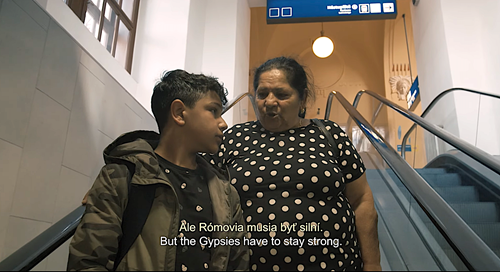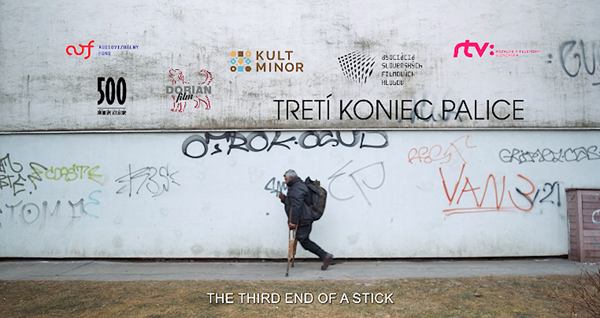
By Robert St. Martin
Los Angeles, California (The Hollywood Times) 05/13/2024
One of the most moving films at this year’s SEEfest Festival of films from Southeast Europe was Jaro Vojtek’s Third End of the Stick (Slovakia, 2023), a documentary mosaic which tells four stories from the poorest Roma Gypsy settlements in Slovakia. Institutional racism, unemployment and poor housing are among the hardships endured by Slovakia’s half-a-million Roma. According to the European Roma Rights Centre (ERRC), Roma in Slovakia endure racism in the job market, housing and education fields and are often subjected to forced evictions, vigilante intimidation, disproportionate levels of police brutality and more subtle forms of discrimination.
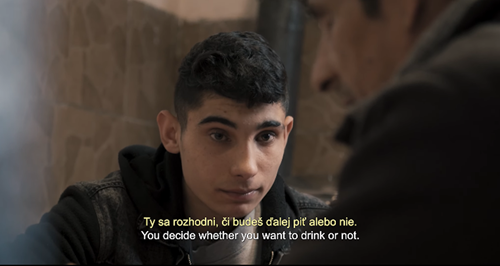
I found this documentary to be especially inspiring and unexpectedly moving. Third End of the Stick takes its title from an idiom “short end of the stick” in English that means to receive unfair treatment or a disadvantageous outcome in a situation. It implies that someone has been given the least desirable or beneficial option or result compared to others involved in the same situation. Certainly, director Jaro Vojtek found four interesting Roma Gypsy individuals willing to share aspects of their lives on camera. It is no wonder that Honorable Mention for Cinematographer at this year’s SEEfest Film Festival went to Cinematographer Ivo Miko and his work on Third End of the Stick.
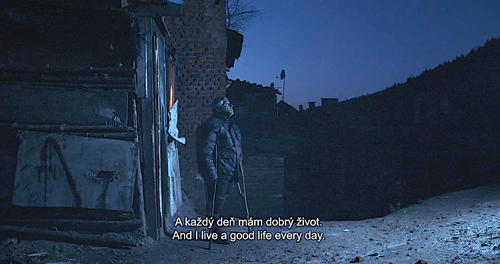
The protagonists do not fit into either the majority society or their own community. This is because of their sexual orientation, religious beliefs or physical disabilities. However, a factual observation of their struggle for a dignified life shows that they are not bitter. On the contrary, they find strength and hope within themselves day after day to overcome common obstacles and step outside the boxes in which they have been situated by other people and by their background. In doing so, they ask no more of others than what they themselves have no problem with – the ability to understand and accept their fellow human beings in their otherness.
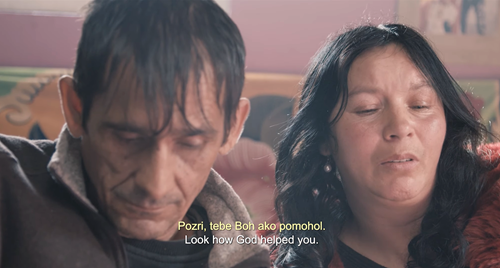
Jaro Vojtek has definitely has the ability as a filmmaker to capture stories about real people who are generally excluded from society. Third End of the Stick follows the fate of the Romani, who have become a minority within a minority. Three queer Roma men (Marek Gabor, David Kemper and Dominic Pokuta) live together in a tiny shack in a Roma settlement where they are ostracized by most of their Roma neighbors. They dream of living and working abroad in Germany. Marek Horváth, a crippled and legless father of five children longs for a wheelchair, begging at the local village Catholic church in the nearby town and trying to find a job he can do with his hands. He loves his family greatly and manages to provide a sweet Christmas with gifts for all the children.
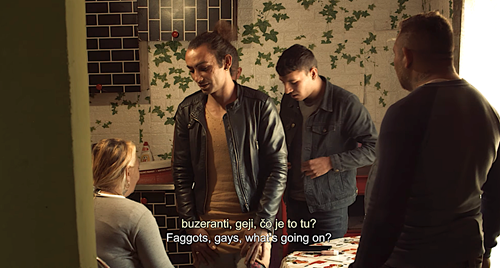
A Romani grandmother named Marian Sivon sacrifices her life for the health of her beloved grandson who has congenital issues and needs expensive surgery to make his life tolerable. The boy who is talented with the violin is approaching puberty and his grandmother wants him to have a normal life despite his physical limitations so she takes him to Prague to a specialist surgeon. Emil Polhos, a Romani man who found faith in God after overcoming his own alcoholism and previous violent streak, tries to save his own son from becoming an alcoholic and destroying his life.
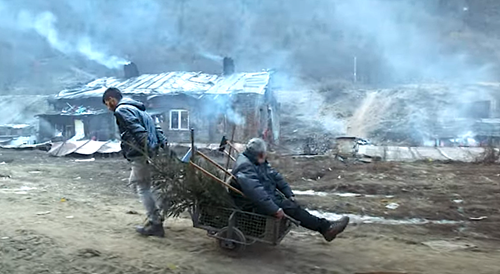
Each story is a moving account in on its own but the over impression from the set is a powerful reminder of how difficult it is for Roma Gypsy people to live in the countries of Eastern Europe where they have long been a presence but always marginalized. Unfortunately, the highly patriarchal and male-dominant attitude of Roma society does not help to better the fate of most Roma people in Slovakia and elsewhere. As the film’s producer Juraj Balaz explains: “The film is dedicated to all those who are not indifferent to anyone’s fate, who are looking for a path to connection, not division, who think more about others than themselves, who give more than they take, who do not judge, but try to understand each other.”
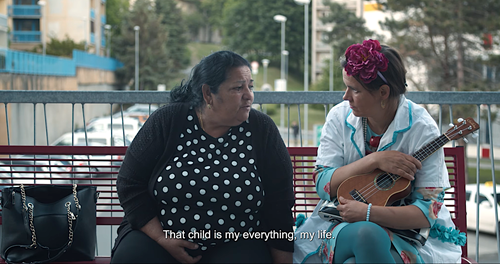
Jaro Vojtek is a product of the Film and Television Faculty in Bratislava, Slovakia. His feature-length documentary Here We Are! (2005), about a Slovak family returning to Slovakia from Kazakhstan, premiered at the Karlovy Vary Film Festival. His film The Border (2009), about a village in eastern Slovakia that lies on the state border, won an award at the Jihlava IFDF and was also presented at the IFFR. His debut feature film Children (2014) premiered at the Beijing International Film Festival, where it was granted the Best Screenplay, Best Cinematography and Best Supporting Actress awards from the jury including directors Luc Besson and Kim Ki-duk.
